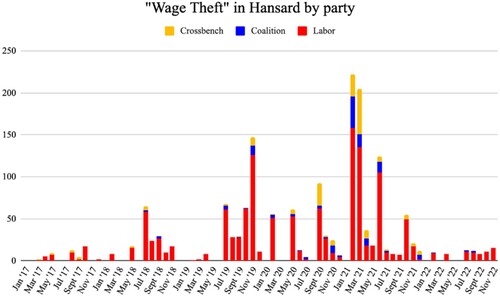For a while there, wage theft disappeared or diminished. Thanks to the demand for labour with the immigration scam shut down during COVID, workers were too scarce to treat them badly.

But with the return of the mass-immigration-led economic model, wage theft is back.
Fair Work is investigating Merivale following fresh claims the hospitality giant underpaid and exploited vulnerable workers, including eight migrant chefs who say they were recruited from Mexico under false pretences.
The Fair Work investigation follows allegations by this masthead, Good Food and 60 Minutes that Merivale is still ordering staff to work more than full-time hours, as the company plots a huge expansion into Melbourne through a $55 million, 11-storey complex in the CBD and a new spa, hotel and nightclub in the heart of Sydney.
The Fair Work probe has been launched just months after Merivale agreed to settle a $19.5 million wage theft class action with hundreds of workers without admitting fault. Lawyers for Merivale and billionaire owner, Justin Hemmes, said that the company “defended the claims in the litigation, at all times vigorously denying that any underpayment occurred”.
As usual, it’s concentrated around the kids.
One in five workers aged 25 and under are reportedly paid below the legal minimum wage for their age.
This is according to analysis by the Australia Council of Trade Unions (ACTU) over Australian Bureau of Statistics (ABS) data, claiming this amounts to around 400,000 Australians.
The analysis was released on the first day of early voting for the upcoming federal election, along with Demos polling showing that stopping wage theft is important or extremely important as an issue in the upcoming federal election for 81 per cent of undecided voters aged 18-24.
Young people in insecure work are disproportionately impacted by wage theft, ACTU continued, with 30 per cent of 18-year-old casual workers paid less than what they should be under the relevant junior award rate.
Come now. This is not an awards issue. It is simply part of the immigration-led, labour market expansion economic model. A feature, not a glitch.
Young people are forced to compete most intensively with migrants for entry-level positions. This shifts the power to the employer, and a culture of wage theft has developed in Australia over the past dozen years, in some ways imported with migrant bosses.
I know it doesn’t do to say so, but that is the truth of it. MB documented this microeconomic devolution extensively over the last cycle.
With Indians now dominating immigration flows, it is hardly going to improve.
A measure of how severe the problem is was released with new laws earlier this year. The Australian.
Scores of bosses in finance, telecommunications and construction could risk jail time and million-dollar penalties, a survey suggests, as wage theft is criminalised in Australia.
A little more than half the companies surveyed by payroll software business Yellow Canary are confident they have paid their employees correctly, while 17 per cent are unsure and 19 per cent suspect there is an issue.
One third of respondents confirmed there had been a payroll issue in the past that they believe had been corrected, while 22 per cent had recently identified an issue and were in the process of correcting it.
There are no statistics on whether or not criminalising wage theft, which began on January 1 this year, has had any impact.
My view is that, in the immigration-led, labour market expansion economic model, halting wage theft is like trying to hold back the tide with a broom.

